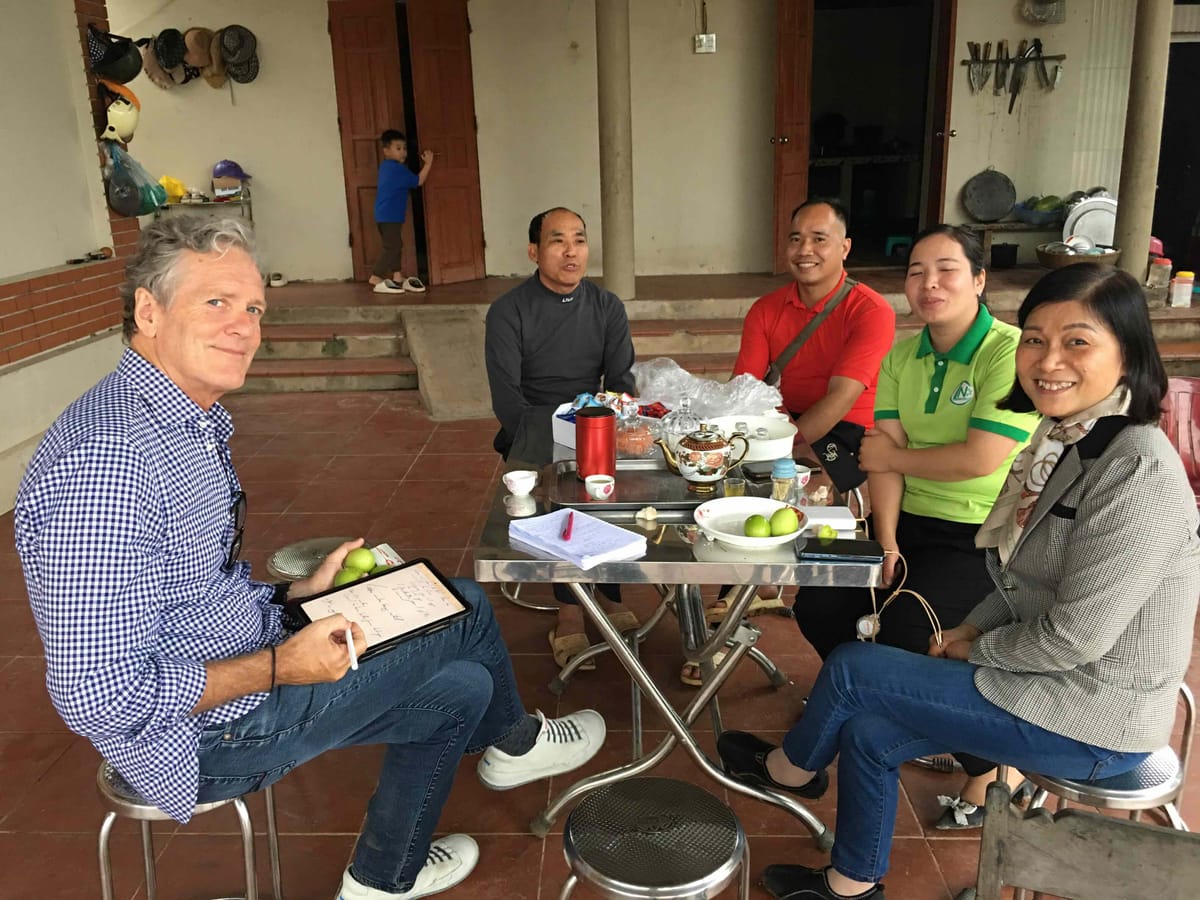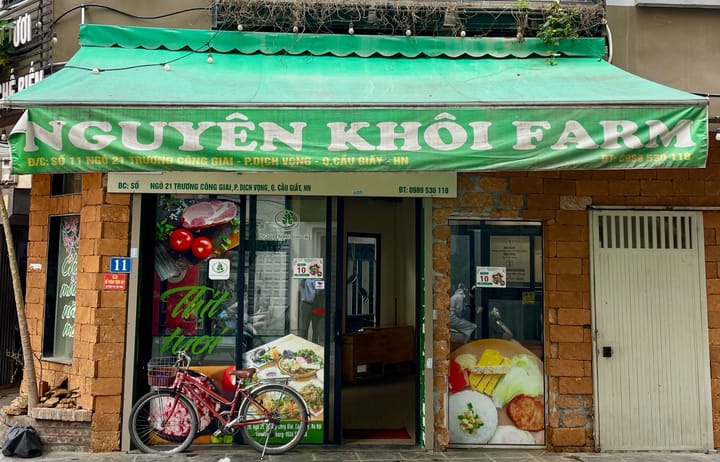How innovation can drive industry competitiveness
Simon White | Discover how innovation can drive competitiveness for private firms. Learn how a Horticulture Innovation Group in Vietnam has helped smallholder farmers diversify and thrive.

Innovation can drive the competitiveness of private firms regardless of their size or the sector and markets in which they operate. To illustrate this, in this post, I describe the creation of a Horticulture Innovation Group in Vietnam and how this has helped smallholder farmers diversify and improve their competitiveness.
Last year (in 2023), the Australian Government commissioned me to assess the support provided for innovation through the Aus4Innovation program. Since 2018, the program has supported innovation in Vietnam through partnerships with Australian organisations. During this assignment, I met Nguyen Thi Minh Thuy and the Luc Ngan Cooperative.
Horticulture Innovation Group
Nguyen Thi Minh Thuy has relied on Chinese lychee buyers for years. Unable to negotiate much on price, she and the Luc Ngan Cooperative, the lychee cooperative she manages, have sold to these buyers for as long as she can remember. But things began to change when the Coronavirus pandemic hit, and she joined a new online community of farmers isolating at home.
Thuy has been a member of other online farming chat groups, but the Horticulture Innovation Group, or HIC, was different. Supported by the Aus4Innovation program, the HIC connected farmers like Thuy to agriculture scientists and business experts interested in learning about the challenges she was facing. Their discussions focused on improving their approach to horticulture production and processing. They learned how innovation can drive the competitiveness of their smallholder lychee farms through better management, investments in new technology, and better access to markets.
From government extension service towards a more market-driven response
Government extension officers have been the primary source of information for farmers, but this was general advice and not always up to date with the latest advances in lychee growing. It also lacked a deep understanding of markets and what growers can do to increase the price of their products.
Using Facebook and Zalo, Vietnam’s ubiquitous chat app, Thuy logged on regularly during the COVID lockdown to share her experiences and ask questions. She joined hundreds of other farmers who proposed and voted on discussion topics. She listened to weekly talk shows where scientists and market specialists presented new solutions to the farmers’ challenges.
Like the other 21 co-op members, Thuy is a smallholder farmer working on two hectares of land in the temperate hilltops three hours from Hanoi. While the options for increasing yield on such small farms are limited, Thuy is learning how to improve the quality of her products. Now, as COVID restrictions have been removed, she continues to connect with the HIC and with buyers who will pay more for good-quality products.
Investments in technology
She learned that the “cold dryer” supplied by the Government was inadequate. Instead, based on advice from the HIC, her co-op purchased a small “hot dryer,” a more efficient technology. This pilot proved successful, and the co-op is experimenting with drying other products, such as bananas, daisy flowers, and mint. They are convinced they are on the right track and will need a bigger dryer.
The last two years have been a period of experimentation. The HIC has opened Thuy’s eyes to new possibilities. She and her fellow co-op members are no longer prepared to accept Chinese buyers’ poor prices. The future is about better quality, better packaging, and new markets, such as Japan.
Linking scientists, agriculture experts, business development experts, and farmers
The HIC is creating connections to help her prepare for this future. While there are challenges with accessing finance, the HIC community is part of a dynamic system of contacts from which Thuy can benefit. It creates a pathway for her to become a more competitive farming enterprise.
A vital element of this network approach to innovation is the good interactions between scientists, agriculture experts, business development experts, and farmers. This unique network has raised awareness among all actors of the opportunities for innovation.
Remarkably, these connections were fostered during significant national and global isolation.
Valuing all markets
The cooperative has taken a deliberate approach to improving sales in foreign and domestic markets. An approach it describes as “valuing all markets.”
In mid-2023, the Luc Ngan Cooperative reported increasing sales and revenue in lychee sales to Japan, including organic certification. It has also embarked on a communications campaign to attract local tourists to the region to sample organic Lychees.
Innovation can drive the competitiveness of private firms
This HIC is a practical example of how innovation can drive the competitiveness of private firms. In this case, smallholder lychee farmers. It highlights how these farmers can benefit from technical, scientific, and market advice through a participatory network in which local experiences are shared. While smallholder farmers in Vietnam face many challenges, they are improving their competitiveness and profitability to benefit their households and the local economy directly.


